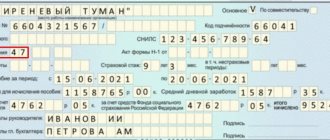If a transaction contradicts the current rules of law enshrined in laws and regulations, it is invalid. Invalid transactions are void and voidable. Void transactions are invalid, regardless of whether they are recognized as such by the court. Voidable transactions are declared invalid by a court decision.
Examples and differences between void and voidable transactions
Void transactions are invalid in themselves and do not require recognition as such through a court. Examples of void transactions:
- committed by a person who, by virtue of the law, does not have the right to commit it. For example, a disabled person or a child under 14 years of age. If, for example, a 12-year-old child, of his own free will and without the knowledge of his legal representatives, sells his bicycle to a friend, this transaction will be void.
- the form of the transaction is violated, for example, a will requires a written form, and if it is drawn up orally, this transaction will be void, that is, it will not entail any legal consequences.
- the requirement to register the transaction has been violated, for example, the ownership of real estate must be registered, otherwise the transaction will be void.
Also, void transactions can be imaginary and feigned (Article 170 of the Civil Code of the Russian Federation). Imaginary ones are those that are committed only for show, and feigned ones are those that are committed to cover up another transaction.
An example of an imaginary transaction: the debtor, not wanting to lose his property, transfers it to relatives, concluding a gift agreement. In this case, the actual transfer of real estate does not occur: he continues to live in the “donated” apartment, pays taxes and utility bills for it.
An example of a sham transaction: real estate is allegedly transferred under a gift agreement, that is, free of charge, but in fact the seller receives money from the buyer, or a lower price is indicated in the real estate purchase and sale agreement, but in fact a higher price is paid.
The sham deal is void, but the deal it covered up is valid.
Voidable transactions require evidence to be recognized as such. Contestability is the ability to invalidate a transaction.
For example, if a deal was concluded by a minor child of 17 years old, but he was previously recognized as fully capable (emancipation), then the corresponding court decision will need to be provided as evidence. Or the transaction was made under threat, with the use of deception or violence. Here you also need to prove in court that these facts took place.
To understand whether a transaction is voidable or void, you need to read the law. If it is expressly stated that a transaction is invalid , then it is a void transaction. If it is indicated that the transaction can be declared invalid by the court, then such a transaction is voidable.
Signs of a void contract
The agreement should not contradict morality and law and order
An agreement is void if it contradicts legal order and morality (Article 169 of the Civil Code of the Russian Federation). Sometimes such transactions are concluded on behalf of minors by their parents, adoptive parents or guardians in relation to minors (clause 1 of Article 65 of the RF IC, Article 169 of the Civil Code of the Russian Federation, paragraph 3 of clause 17 of the Resolution of the Plenum of the Armed Forces of the Russian Federation dated June 23, 2015 No. 25). The Constitutional Court of the Russian Federation pointed out the qualifying feature of an antisocial transaction. He believes that the purpose of such an agreement is to achieve a result that not only does not comply with the law or moral standards, but deliberately contradicts the foundations of law and order and morality. This contradiction is obvious to participants in civil transactions. The antisocial nature of a transaction is determined by the courts taking into account:
- actual circumstances;
- the nature of the violations committed by the parties;
- consequences (definition of the Constitutional Court of the Russian Federation dated 06/08/2004 No. 226-O).
The basis for declaring a contract void is the imaginary nature of the stated result.
Transactions of an imaginary nature are considered void. The participants in such a transaction do not intend to create its conditions and legal consequences (determination of the Supreme Court of the Russian Federation dated September 6, 2016 No. 41-KG16-25). To confirm the imaginary, it is necessary to establish that its participants did not plan to create, change, or terminate civil rights and obligations (determination of the RF Armed Forces dated July 25, 2016 in case No. 305-ES16-2411, A41-48518/2014). The court also points out that its participants do not have the goal of executing or demanding the execution of the transaction (determination of the Supreme Court of the Russian Federation of May 17, 2016 No. 2-KG16-2). As a rule, creditors declare such transactions as part of the debtor's bankruptcy. It can be difficult to challenge such a deal. The courts refuse the request if the transfer of funds is confirmed (resolution of the Arbitration Court of the Central District dated April 17, 2018 N F10-287/2017 in case No. A68-57/2016). It is possible to establish imaginaryness if:
- there was no approval of the transaction;
- the parties significantly underestimated its value.
For example, the bankruptcy trustee demanded that the purchase and sale agreement for a vehicle be invalidated and the corresponding consequences applied. The court granted the claim. He came to the conclusion that the contract was void due to its imaginary nature. The company entered into a controversial agreement with its deputy director, that is, with an interested party, and violated the approval procedure. The agreement was not actually fulfilled: the defendant formally registered the vehicle, did not pay taxes, did not undergo technical inspection, and did not enter into MTPL agreements (resolution of the Arbitration Court of the Central District dated November 23, 2017 No. F10-5437/2016 in case No. A35-6874/2015).
The transaction should not have any signs of sham
The law defines a sham transaction, the purpose of which is to cover up another agreement or conclude it with another subject (Article 170 of the Civil Code of the Russian Federation, paragraph 87 of Resolution No. 25). Courts recognize such transactions as:
- agreements that the parties actually concluded for a large amount (clause 87 of Resolution No. 25);
- sham loan agreements, if the purpose of the agreements is to increase controlled accounts payable with the aim of subsequently reducing, in the interests of the debtor, the number of votes of independent creditors (paragraph 10, paragraph 18 of the review of judicial practice of the Supreme Court of the Russian Federation No. 5 (2017)).
The chain of transactions may turn out to be feigned. This happens when companies seek to evade taxes, make it impossible to recover property, etc. In judicial practice, there are examples when the discovery of such a chain led to the recognition of contracts as void. For example, the court found that the debtor intended to withdraw the company's assets. The company entered into a transaction for the gratuitous transfer of real estate into the ownership of the counterparty. The property was then transferred successively to the other four companies. The court revealed signs of pretense. The debtor intended to alienate the property to the last buyer. The purpose of the gratuitous transfer was not to invest in the main or subsidiary companies, but to sell the asset to the beneficiary. The company entered into the transaction to exclude the possibility of repaying the debt to creditors at the expense of the disputed asset. The gratuitous transfer of property allowed the participants in the transaction to also evade paying taxes on amounts from the sale of property (resolution of the Arbitration Court of the Volga-Vyatka District dated October 24, 2017 No. F01-4697/2017 in case No. A43-12156/2016).
Transactions with incapacitated persons are prohibited
The parties to the transaction return what they received in kind or reimburse the cost if the party to the transaction is an incapacitated person (Article 171 of the Civil Code of the Russian Federation). The law included such participants as persons incompetent due to mental illness, as well as minor citizens who, due to their age, cannot enter into agreements. An unscrupulous party uses the provisions of the law to challenge contracts. As a rule, if there is no video recording of the transaction, representatives of the injured party try to prove the reality of the transaction. To confirm the legality of the conclusion of the contract, the bona fide party submits requests to the traffic police and medical institutions. For example, she proves the normal mental state of the counterparty, citing the fact that the latter passed a commission to renew a driver’s license, the lack of registration in a psychiatric hospital, and the conclusion of other transactions. Evidence also includes testimony of witnesses, medical documents, conclusions of a commission of forensic psychiatric experts (decision of the Chelyabinsk Regional Court dated December 15, 2011 in case No. 33-13261/2011).
CALL +7 (495) 255-11-80, FREE CONSULTATION!
Procedure for filing claims for invalid transactions
A court can recognize a transaction as invalid and apply the consequences of its invalidity; accordingly, a statement of claim must be filed within the limitation period.
For void transactions, the reasoning part of the claim specifies the requirement: to apply the consequences of the invalidity of the transaction. The requirement to recognize a void transaction as invalid is not necessary, since it is void. But the court may, on its own initiative, declare it invalid and indicate this in the decision.
In cases of contestable transactions, the claim states two demands:
- invalidate the transaction;
- apply the consequences of invalidity of the transaction.
Individuals need to apply to the district court. State duty according to clause 2, part 1 of Art. 333.21 of the Tax Code of the Russian Federation is 6,000 rubles.
An explanation of the application by courts of certain provisions of the civil code, including regarding the recognition of transactions as invalid and the application of the consequences of invalidity of transactions, is contained in the Resolution of the Plenum of the Supreme Court of the Russian Federation dated June 23, 2015 No. 25.
Time limits for going to court regarding invalid transactions
file a claim to apply the consequences of a void transaction within three years after the execution of this transaction began. This procedure is established if a person who is a party to a transaction applies to the court.
If a third party who is not a party to the transaction goes to court, then the three-year period begins to count from the moment when the person learned or should have learned about the beginning of its execution. Here you need to take into account that the statute of limitations in this case cannot exceed ten years .
As for voidable transactions , a statement of claim to declare such a transaction invalid, as well as to apply the consequences of its invalidity, can be filed within one year .
This period begins to count from the moment when the violence or threats under the influence of which the transaction was concluded cease. Or from the moment the plaintiff learned that his right was violated and there are grounds for declaring the transaction invalid.
The limitation period for invalid transactions is regulated by Art. 181 Civil Code of the Russian Federation.
Features of an imaginary transaction
Civil Code of the Russian Federation in Part 1 of Art. 170 calls an imaginary transaction, which is concluded without any incentive to create real legal results, solely “for show,” and both parties are well aware of this. This is by no means an aimless transaction, it’s just that its purpose does not correspond to the stated one, it is hidden from external observers because it is illegal.
FOR EXAMPLE . The company is facing inevitable bankruptcy, and it “rewrites” part of its assets to another person. In this case, the property does not actually change hands at all, because the real purpose of the transaction is precisely to preserve it. After all, in the event of bankruptcy, assets will be sold for debts.
Another common example of a sham transaction is disguising a bribe. A “sale” of valuable property is formalized, only in reality the buyer does not pay any money agreed upon in the terms of the transaction.
How to distinguish an imaginary deal
Imaginary transactions have features that characterize them, in contrast to “normal” legal transactions, as well as from other types of invalid ones. Some of the features will certainly appear, and some may or may not occur.
Characteristic features of imaginary transactions:
- There is a violation of the will, but the form is strictly observed and even excessively (for example, documents that do not require confirmation are certified by a notary, things that can be discussed orally are drawn up in writing, etc.).
- After the transaction is concluded, its terms are not fulfilled or this occurs only in relation to part of the content. The transaction is carried out only on paper.
- Both parties do not intend to fulfill the terms of the transaction, having agreed on this before its completion.
- The real purpose of concluding such a transaction is contrary to legal norms.
Indirect features may also indicate that the transaction is sham:
- dependent, close or even family ties between the parties to the transaction;
- coincidence of legal addresses of the parties-legal entities;
- some persons or the entire composition of the founders of the organizations concluding the transaction are the same;
- For a certain period of time, no real actions occur that will inevitably cause the terms of the transaction to be fulfilled.
FOR EXAMPLE. An imaginary transaction was concluded for the purchase and sale of residential real estate. If we consider its validity in court, they will ask who is currently registered or living in the alienated property - the buyer or still the seller or their representatives. The court will also find out whether contracts with housing and communal services have been renegotiated, who pays for utilities, etc. The question of the circumstances surrounding the transfer of money will also be raised.
Consequences of recognizing the invalidity of an imaginary transaction
Since the parties did not actually transfer anything to each other during the imaginary transaction, they should not return anything. Having proved the legal inconsistency of the transaction, the court will only cancel the transaction itself. And what this cancellation will lead to does not matter, since the legislative “status quo” must be restored.
FOR EXAMPLE . The citizen was sued, demanding payment of the debt. Knowing that he will be forced to fulfill the demand, wanting to avoid having his apartment seized, he enters into a deal to “sell” it to a person he trusts. In fact, he continues to live in an apartment that does not belong to him only formally. The court proves that the deal is sham. What's changing? The ownership that has been changed is returned. Now the creditor will be able to recover his funds by seizing and selling the apartment at auction, which will be carried out by the enforcement service. Please note that these consequences will occur if the apartment was sold after the creditor went to court. In a situation where the debtor has “insured himself” in advance, it will no longer be possible to prove anything, especially if a trusted person or relative has already resold the apartment legally.
IMPORTANT! If the court determines that there were no consequences for the transaction, it will be declared imaginary, regardless of whether proper registration has been completed or whether there are deviations from the norm (for example, the transaction has not yet been registered).
The imaginary deal was declared invalid, but what will happen to its participants, besides the return of the original rights? For those who made a sham transaction, liability may arise if additional charges are brought against them, for example, a police report for fraud.
Grounds for invalidity of transactions
Transactions are invalid or can be recognized as such by a court on the following grounds:
Violation of the form - for example, failure to comply with the requirements for notarization of the contract, or its state registration.
Violation of content - if the content of the transaction contradicts the basics of law and order and morality, for example, imaginary or feigned transactions.
Violation of will - if the transaction was not concluded according to the good will of its participants or at least one of them, or if the internal will was formed incorrectly, for example, under threat or deception.
Violation of the subject structure - the participants in the transaction did not have the right to complete it, for example, the transaction was carried out by an incapacitated person or during its execution the powers were exceeded, etc.
Consequences of invalid transactions
According to Art. 167 of the Civil Code of the Russian Federation, an invalid transaction does not provide for the occurrence of legal consequences, except for those associated with its invalidity. A person is considered to have acted in bad faith if he knew about the grounds for the invalidity of the transaction.
The parties are obliged to return everything received as a result of an invalid transaction to each other , and if this is impossible, for example, the property received as a result of an invalid transaction has already been sold, to reimburse the other party for its value.
An example with a marriage contract: if the contract and some of its individual clauses are declared invalid, then the spouses are obliged to return to each other all the property that they received as a result of compliance with this contract.
It is important to take into account that the court has the right not to apply the consequences of invalidity of a transaction if they contradict the fundamentals of legal order and morality. For example, if, according to the same marriage contract, one of the spouses is in an extremely unfavorable position.
Invalidity of transactions within the framework of innovations in the Civil Code of the Russian Federation dated September 1, 2013.
In 2012, the State Duma adopted a large-scale bill No. 47538-6 in the first reading, introducing numerous amendments to the Civil Code of the Russian Federation as part of the reform of Russian civil legislation. It was assumed that this law would come into force on September 1, 2012, but later it was decided to gradually introduce its provisions, dividing this voluminous document into 4 parts. The representative in the arbitration process must understand the fundamental changes in civil law, especially in terms of challenging transactions.
On September 1, 2013, the Federal Law of May 7, 2013 No. 100-FZ “On Amendments to Subsections 4 and 5 of Section 1 of Part One and Article 1153 of Part Three of the Civil Code of the Russian Federation” came into force. This is the second of four bills designed to make global changes to civil legislation.
One of the most important and interesting changes introduced by this law is the revision of the provisions regarding the invalidity of transactions . However, before starting to analyze the innovations introduced by the Law, it is worth returning to the previously valid version of the Civil Code of the Russian Federation and determining what is meant by an invalid transaction and what legal consequences are provided for in relation to it.
The concept of invalidity itself has not changed. A transaction that violates the requirements of the law is considered invalid. Such a transaction has no legal force, that is, it cannot serve as a basis for the emergence, extension or termination of civil legal relations, since the implementation of such relations within the framework of an invalid transaction would lead to violations of the rights of interested parties. In this regard, the transaction is considered invalid from the moment of its conclusion. The question arises: what happens in this case to the result of such transactions, that is, to the property received, services provided, work performed? In this case, if the transaction has taken place, restitution is made, that is, each party is obliged to return to the other party everything that was received as a result of the implementation of this transaction in kind or in the corresponding monetary equivalent. If the deal does not take place, it is cancelled.
Invalidity is divided into two types: nullity and voidability. Transactions that directly contradict the requirements of the law are void. An example is a transaction made by an incapacitated person, as well as imaginary, feigned transactions, etc. Such transactions are considered invalid by force of law, that is, a special judicial act is not required to recognize their invalidity; the court only states this fact and applies the appropriate legal consequences specified in the law. For example, one of the consequences of the invalidity of a transaction involving an incompetent person is the obligation of the legally capable party to compensate the other party for the actual damage it has suffered, if the legally capable party knew or should have known about the other party’s incapacity (Article 171 of the Civil Code of the Russian Federation).
Voidable transactions are initially assumed to be valid, therefore, they can be declared invalid only on the basis of a decision of the arbitration court. The legal consequences of recognizing a transaction as void or voidable are different: if a void transaction, in principle, does not give rise to legal consequences (except for those related to its invalidity), then two options are possible in relation to a contested transaction. The first option is for the court to declare it invalid from the moment it was concluded, in which case the decision will have retroactive effect. The second option is for the court to declare the disputed transaction invalid for the future, thus leaving in force the results obtained on the transaction before the trial.
Returning to the review of Law No. 100-FZ, I would like to immediately note that one of the main innovations is a change in the conditions under which a transaction is considered void or voidable, as well as a rethinking of the corresponding legal consequences. In the previous edition of Article 168 of the Civil Code of the Russian Federation, it was established that a transaction that does not comply with the requirements of the law or other legal acts is void unless the law establishes that such a transaction is contestable. The new law in Art. 168 of the Civil Code of the Russian Federation introduced the opposite procedure: a transaction that violates the requirements of a law or other legal act is voidable, except in cases where the law provides otherwise.
Accordingly, the procedure for recognizing nullity has also been changed. If a transaction violates the requirements of the law, then it will be declared void if it infringes on public interests, or the rights and legally protected interests of third parties, as well as in some other cases prescribed by law. This, for example, is failure to comply with the notarial form, making a transaction for a purpose contrary to the foundations of law and order or morality, making a sham transaction, etc.
From these provisions we can conclude that a transaction that violates the provisions of the law in relation to the counterparty is voidable. If such violations concern public interests or the interests of third parties, then the transaction is void. Accordingly, in order to recognize a transaction as void, an interested party who is not a party to the transaction will need to prove the public nature of the violations, or that the consequences of an unlawful transaction affect his interests.
Thus, the new law limited the circle of persons who can demand that a transaction be declared invalid. In the old version of Art. 166 of the Civil Code of the Russian Federation, the requirement to apply the consequences of invalidity could be presented by any interested party, and the court could apply such consequences on its own initiative. At the moment, such a requirement is recognized as a subjective right of a participant in a transaction, therefore, only a party can present it. Other persons make this requirement in cases established by law, and arbitration can now do this on its own initiative if it is necessary to protect public interests.
The legislator also refers to the principle of good faith recently introduced into civil law. Thus, according to the new rules, if a party that knew or should have known about the invalidity of the disputed transaction continued to fulfill its obligations, and subsequently the transaction was declared invalid by the court, it is considered that the party acted in bad faith (Clause 1, Article 167 of the Civil Code of the Russian Federation in ed. Law).
A special rule enshrined in clause 5 of Art. is aimed at protecting the bona fide party. 166 of the Civil Code of the Russian Federation as amended. Law. Its meaning is that a transaction cannot be declared invalid at the request of a party who, initially acting in bad faith, through his behavior gave the counterparties grounds to consider the transaction valid and legal. Thus, recognition of a disputed transaction as invalid is possible upon the application of a bona fide party whose rights were violated and who has a legally protected interest in recognizing the invalidity (paragraph 2, paragraph 2, article 166 of the Civil Code of the Russian Federation as amended by the Law)
In addition, the Law introduces another rule operating within the framework of the principle of bad faith. It is enshrined in Art. 173.1 of the Civil Code of the Russian Federation as amended. The law does not allow a person to challenge a transaction on the grounds to which he gave his consent, about which he knew or should have known at the time of expressing consent. For this person, the transaction ceases to be contestable on such grounds. This legal phenomenon is called convalidation or healing of a disputed transaction, the essence of which is to give it legal force, despite the signs of invalidity.
Thus, with regard to the invalidity of transactions within the framework of the innovations introduced by Law No. 100-FZ, the following conclusions can be drawn:
- A transaction that violates the provisions of the law is, as a general rule, considered voidable. A transaction is recognized as void only in cases strictly defined by law.
- The circle of persons who can demand that a transaction be declared invalid is limited. If previously any interested party could make such an application to the arbitration court, now it will become the subjective right of the party. Thus, those persons whose interests are not violated by an unlawful transaction will not be able to challenge it or recognize it as void.
- The court's right to apply the consequences of invalidity of a transaction on its own initiative is limited. From now on, the arbitration court will be able to do this only in order to protect public interests, or in cases specified in the law.
- Special rules have been introduced aimed at complying with the principle of good faith. A transaction cannot be declared invalid at the request of a person who misled his counterparties regarding the validity of the transaction, also if the party began to execute the transaction knowing about its invalidity.
Dmitry Yakushev, legal assistant, Antanta Law Company
What is the difference between applying the consequences of invalidity of a transaction and terminating a contract?
Termination should not be confused with the recognition of the contract as invalid and the application of the consequences of invalidity of the transaction. An agreement can be amended or terminated not only due to its invalidity, but also by agreement of the parties or by a court decision.
In the event of termination or change in the terms of the contract, the parties do not have the right to demand from each other to return what they received during the validity period of the contract. A court decision or agreement to terminate or change the terms of the contract begins to take effect from the moment it comes into force or is signed, respectively.
Let's return to the example of a marriage contract; above, we considered the case of declaring it invalid and returning the property.
If, for example, the spouses, of their own free will, decide to terminate the contract, then its effect will cease only after its termination. Property received during the period of its validity will not need to be returned to each other. But the terms of the terminated contract will no longer apply to property that they acquire in the future.
Therefore, in order to determine which claim to file in court: to declare a transaction invalid or to terminate or amend a contract, one should proceed from an understanding of the legal consequences.
Consequences of bankruptcy
When talking about the results of declaring a citizen bankrupt, we mean physical, financial, and moral consequences. Let’s take a closer look at what an individual declared bankrupt sacrifices and what benefits there are in this procedure.
It is important to note that all of the following are general rules. If you want to learn about the individual features of bankruptcy for individuals and the specific stages of bankruptcy of individuals and legal entities, read other articles or immediately contact a professional lawyer.
He will suggest the best option for your case.
Articles on the topic (click to view)
- The Supreme Court corrected the courts in the case of a “consumer” fine
- Bankruptcy procedure for an individual: steps, stages, step-by-step diagram
- Consequences and restrictions for the debtor and his relatives during bankruptcy proceedings under 127-FZ
- 159 Federal Law on additional guarantees for social support for orphans
- Phips open registers trademarks
- Federal Law on Insolvency (Bankruptcy) of Individuals 127-FZ and 154-FZ: what you need to know
- What is payment confirmation? Payment confirmation document
Examples of common risky trades
Examples of the most common risky transaction scenarios in the real estate industry. When to be wary and what to pay attention to and check legal compliance:
- violation of privatization conditions - the seller of the apartment did not formalize privatization in the proper manner and in fact the property is owned by the state;
- buying an apartment that was inherited by the seller - the main risk here is that it is difficult to check all the other potential heirs who may subsequently make their claims on the property;
- the apartment is sold by a person recognized as incompetent - according to the law, only his legal representative can sell the apartment of an incompetent citizen with the permission of the guardianship authorities;
- the rights of minors have been violated - for example, parents bought an apartment using maternity capital and sell the apartment without allocating shares to the children; such a transaction is illegal.
- the real estate seller did not receive the consent of the spouse for the sale - the apartment was purchased during marriage, registered in the name of one of the spouses, he sells it without obtaining the consent of the second spouse.
- they are selling housing that they received as a gift - here it is important to understand whether the gift agreement was not a sham transaction covering up the purchase and sale of an apartment;
- sale of an apartment received under a rent agreement - even when purchasing an apartment under an executed rent agreement, it is difficult to completely protect yourself from the appearance of uninvited relatives or heirs of the renter; it is advisable to check such points in advance;
- the transaction is handled by a trusted person - potential risks in this case: improper execution of the power of attorney, whether the power of attorney was given by a person who was misled;
- sale of a share - pitfalls can be: disagreements with the owners of the remaining shares, possible disagreement of the guardianship authorities on the sale of the share if the shares belong to minors;
- an apartment is being sold by an elderly person - here it is important to check that the transaction is made in good faith, that the elderly person is not under pressure and is not misled.
How to protect yourself from unreliable transactions
To avoid troubles when making real estate transactions and other types of transactions, to protect yourself from unreliable transactions, you should carefully check all the documents provided. If in doubt, make inquiries to the relevant government authorities or contact a specialist.
To make safe real estate transactions, it is better to act through a realtor. When concluding other transactions that require special knowledge in the field of law, it is advisable to contact a lawyer or lawyer.
Courts, Contracts, Real Estate
Save:
Types of invalid transactions
The possibilities of breaking the law when concluding transactions are quite extensive, this determines the classification of their invalidity. Depending on the order in which their invalidity is revealed, they can be:
- disputable - their legal inconsistency will have to be proven during the judicial procedure;
- void - showing their invalidity immediately upon conclusion.
Most often, as practice shows, imaginary and feigned transactions are made. They are considered void – invalid immediately from the moment they are committed. During these transactions, the expression of will is violated - the actual actions of the parties do not correspond to the real will of the parties.
What are the accounting, auditing and legal approaches when establishing criteria for recognizing transactions as imaginary and sham ?





